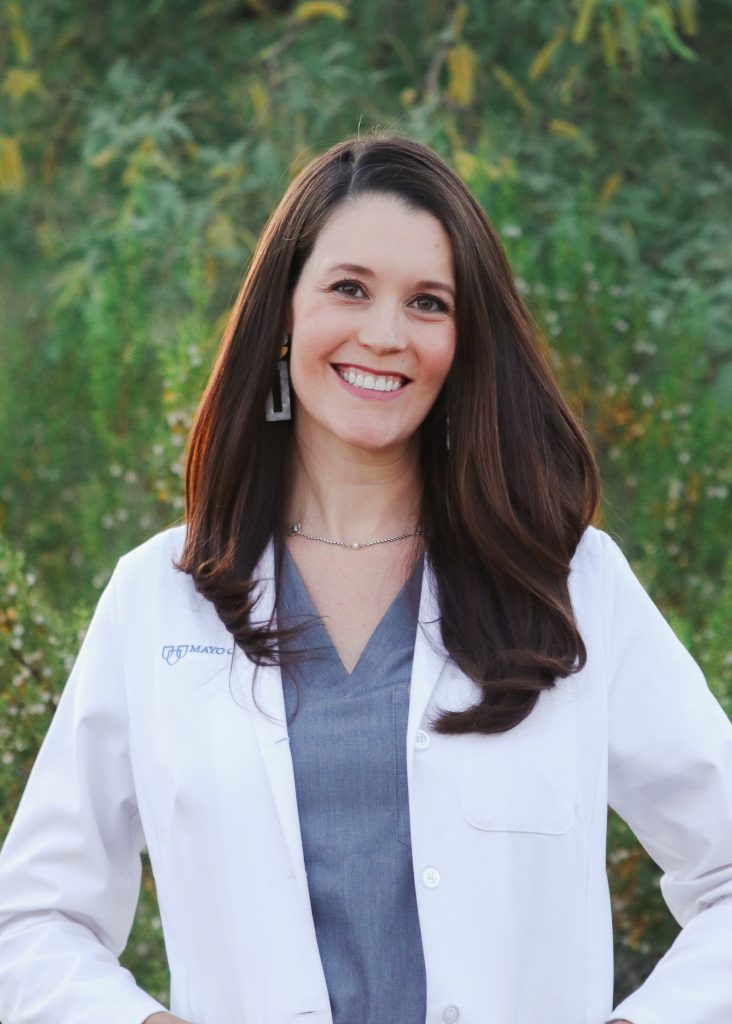
Dr. Rachael Haverland
Rachael Haverland, M.D.
Dr Rachael Haverland – Endometriosis Specialist, Gynecologist, Minimally Invasive Gynecologic Surgeon
Summary: Dr Rachael Haverland is a gynecologist and endometriosis specialist in Dallas, TX, known for her thoughtful, holistic approach to care. As a minimally invasive gynecologic surgeon, Dr Haverland focuses on complete excision surgery—the gold standard for endometriosis treatment—and supports recovery through a multidisciplinary care plan. Many Dr Rachael Haverland reviews highlight her dedication to addressing the full picture of pelvic pain, including related conditions like IBS and interstitial cystitis.
With a strong belief that every patient’s journey is unique, Dr. Haverland avoids one-size-fits-all treatments and limits the use of medications with harsh side effects. Instead, she often combines non-opioid pain management, pelvic floor physical therapy, and collaborative care with other specialists. Patients value how Dr. Rachael Haverland takes the time to uncover the root causes of pain and stay involved throughout the healing process—an approach that consistently earns praise in Dr. Rachael Haverland reviews.
City: Dallas, TX, USA
Philosophy: The etiology of endometriosis is complex. I do not agree with retrograde menstruation as I have seen premenstrual as well as postmenopausal patients with endometriosis. This also leads to the idea if you stop menstruation, you stop the pain which is not always the case. While more research on endometriosis needs to be done, I do believe the endometriotic implants are likely genetically present consistent with the Mullerianosis theory. They may additionally spread by lymphatic or blood systems ( how we get cardiac and pulmonary endometriosis). Endometriosis for gold standard treatment must be excised completely. Once appropriate excision surgery has been completed, a dynamic team approach with pelvic floor PT, injections by physiatrists and frequent postoperative visits to ensure no other additional diagnosis was missed is important. Frequently IBS, IC, or other chronic conditions are found in patients with endometriosis.
Medication: Endometriosis treatment is multifaceted and must start with a holistic approach to not only management of the endometriosis but also the other disease processes. I reserve/restrict the use medications such as Lupron, Orlissa, or other GnRH agonists or antagonists due to significant physical and mental side effects. Medications can be used to help symptoms if a patient does not desire excision surgery and options such as progesterone IUD or birth control pills are offered if desiring contraception. I also discuss after surgery, the first 2-3 cycles may be irregular and or more painful due to acute inflammation. Frequently, I use other non-opioid mediations such as NSAIDs, duloxetine, gabapentin, other SNRIs and compounded medications in adjunct depending on the patient’s pain generators.
Approach to Persistent Pain After Surgery: Multidisciplinary approach is the key to success! After patients have been in prolonged pain, the central sensitization of pain cycle can be important to address. Using compounded vaginal suppositories, pelvic floor PT, pelvic floor Botox and also targeted nerve injection series with physiatrist can be beneficial to address pain after surgery. If persistent pain continues, my approach is individualized. First, I closely evaluate each organ system to ensure we are addressing each area in a holistic approach at the initial visit to identify potential coexisting pain generators. At the initial consultation visit I also identify other compounding potential etiologies of pain. Sometimes a second look is necessary or discussion of other forms of hormonal suppression. I always follow my patients until their symptoms are improved.
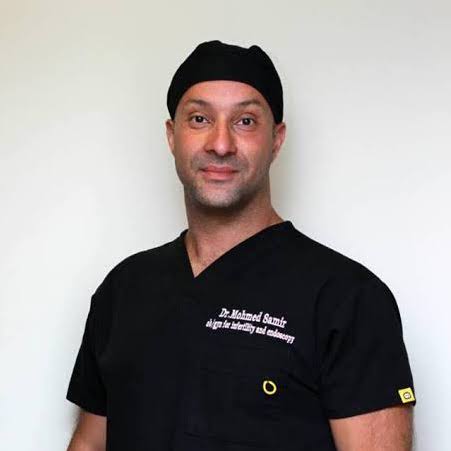
Dr. Mohamed Mounir
Mohamed Mounir, M.D.
Dr Mohamed Mounir – Gynecologist, Minimally Invasive Gynecologic Surgeon
Summary: Dr Mohamed Mounir, an experienced gynecologist and minimally invasive surgeon in Alexandria, Egypt, specializes in the treatment of complex gynecological conditions. With a deep understanding of regurgitation theory and blood-borne spread, Dr Mohamed Mounir uses advanced imaging techniques such as ultrasound, 3D enhancement, and MRI for accurate diagnosis and tailored treatment plans. His approach combines cutting-edge technology with a patient-centered care philosophy, ensuring the best possible outcomes for each individual. Dr Mohamed Mounir is committed to providing compassionate care, offering minimally invasive procedures that promote faster recovery and less discomfort. For those seeking expert gynecological care in Alexandria, Dr Mohamed Mounir’s practice offers a comprehensive and empathetic approach to women’s health.
City: Alexandria, Smouha, Egypt
Philosophy:
Regurgitation theory
Blood born spread
Use of Imaging in Diagnosis:
U/S
3D ENHANCEMENT
MRI

Dr. Maria Victoria Vargas
Dr. Maria Vargas, M.D.
Victoria Vargas – Gynecologist, Minimally Invasive Gynecologic Surgeon
Summary: Victoria Vargas MD, also known as Dr. Vargas OBGYN, is a skilled gynecologist and minimally invasive gynecologic surgeon based in Washington, D.C. Specializing in endometriosis, Dr. Maria Vargas combines a deep understanding of the disease’s complex nature with a patient-centered approach to care. She emphasizes the multifactorial origins of endometriosis, incorporating the latest research, including the Mulleriosis theory, to offer individualized treatment options.
Dr. Vargas provides comprehensive care, including hormonal therapies like combined oral contraception and the levonorgestrel-releasing IUD, tailored to each patient’s needs. She also focuses on managing persistent pain post-surgery, offering non-narcotic solutions such as nerve blocks, acupuncture, and pelvic floor physical therapy. Whether through lifestyle recommendations or advanced surgical techniques, Dr. Vargas helps her patients improve their quality of life with personalized, holistic care.
City: Washington DC, USA
Philosophy: Endometriosis is a complex disease and its etiology appears to be multifactorial. Currently, Mulleriosis seems to be the most accepted theory of origin. Unfortunately, we still lack understanding about the full spectrum of the disease, which includes a self-sustaining, highly inflammatory environment with the capacity to promote its own nerve and blood supply. There seems to be a hereditary component, and increasingly, we are defining somatic mutations common to endometriosis lesions. Given the many unknowns regarding endometriosis, I focus my practice on ensuring patients understand the complexity of the disease and try to develop an individualized approach based on each patient’s preferences and circumstances.
Medication: Depending on my patient’s preferences and needs, I offer hormonal suppressive therapy, including combined oral contraception, oral progestin medication, and the levonorgestrel-releasing IUD. I typically recommend extended-cycle dosing or continuous dosing of oral medications to achieve amenorrhea. In some cases, when patients don’t have sufficient improvement with hormonal suppression or when they don’t tolerate or are opposed to hormonal suppression, I may also recommend NSAIDs, gabapentin, or SNRIs.
Approach to Persistent Pain After Surgery: I bring up the possibility of residual pain before the surgery takes place so patients understand that there may be ongoing treatment beyond the recovery from surgery. I follow patients closely after surgery to ensure that they are able to achieve a maximal improvement in quality of life. If residual pain is present, I consider the possibility of co-morbidities, such as pelvic floor dysfunction and painful bladder syndrome. When appropriate I refer to my colleagues in pelvic floor physical therapy, pain management, and urology. I do promote a focus on non-narcotic options for residual pain, such as nerve blocks, trigger point injections, acupuncture, and TENS therapy. I also encourage mindfulness and meditative practices. I utilize hormonal suppressive therapy when appropriate as well. Rarely, I discuss second-look surgery as an option. I find that the vast majority of my patients achieve a positive outcome with this approach.
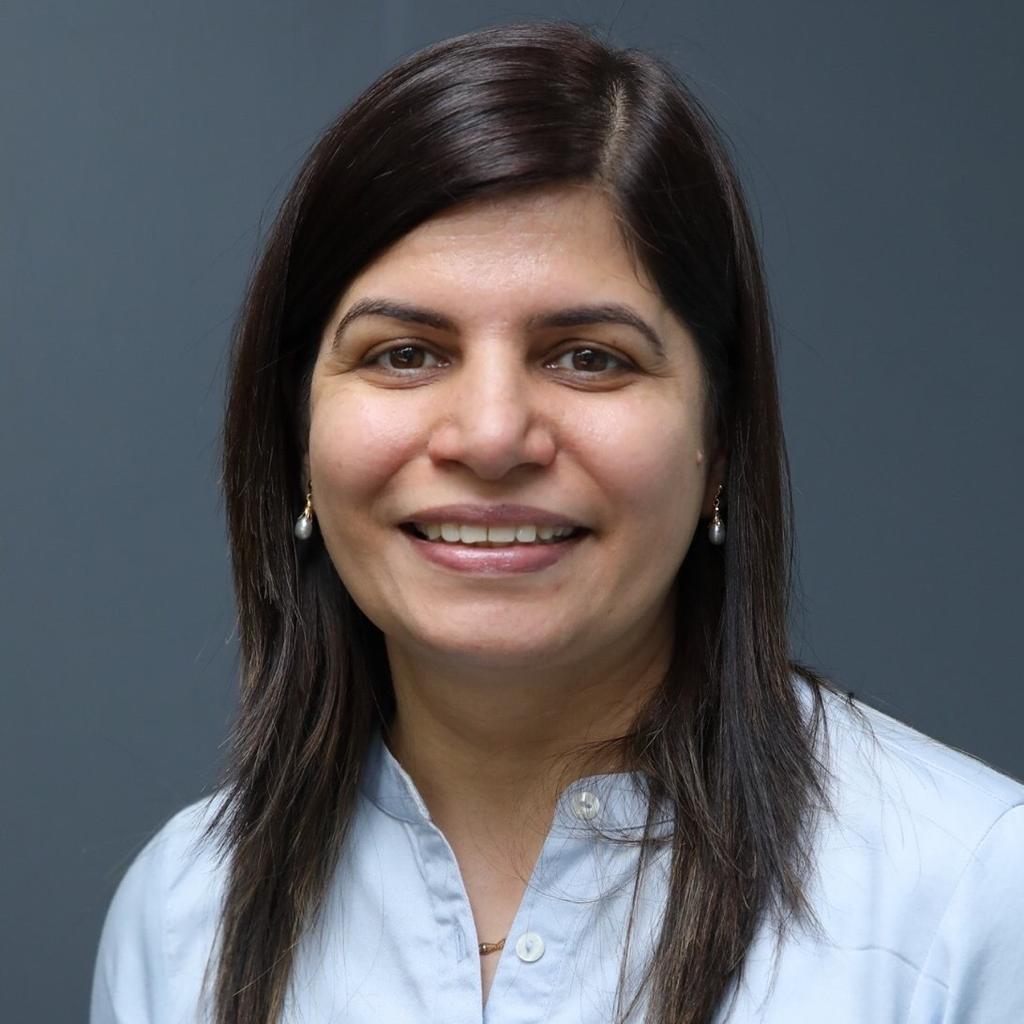
Dr. Vimee Bindra
Vimee Bindra, M.D.
Dr Vimee Bindra – Endometriosis Specialist, Minimally Invasive Gynecologic Surgeon
Summary: Dr Vimee Bindra, an experienced endometriosis specialist and minimally invasive gynecologic surgeon based in Hyderabad, Telangana, India, is dedicated to providing holistic care for patients with endometriosis. With a deep belief in the Mulleriosis theory, Dr Vimee Bindra emphasizes excision surgery as the primary treatment for endometriosis. Post-operatively, he tailors care with progestin-based therapies, hormonal contraceptives, and Mirena IUD, depending on each patient’s age, diagnosis, and fertility needs. Dr Vimee Bindra’s approach to persistent pain after surgery involves thorough follow-ups, anti-inflammatory diets, and pelvic physiotherapy. In cases of unresolved pain, he works with pain specialists, exploring additional treatment options such as nerve blocks. His practice focuses on comprehensive care to reduce recurrence and ensure long-term health for his patients. For those seeking a Dr Vimee Bindra appointment, her expertise in excision and personalized care provides hope for those battling endometriosis.
City: Hyderabad, Telangana, India
Philosophy: Theory of Mulleriosis as proposed by Dr. David Redwine. The disease cells are laid down during the development of the Mullerian system and are triggered by various factors in the aging process and due to abnormal differentiation of the Mullerian duct system.
Medication: Endometriosis is a whole-body disease and there is no cure to date and excision is the first-line treatment or akin to cure for endometriosis. Our approach to endometriosis is holistic and the patient is involved in decision making.
As medical therapy does not work for endometriosis we don’t recommend it pre-operatively but post-operatively we rely on progestin-based therapies specially dienogest or hormonal contraceptives and Mirena IUD for adenomyosis. The medical therapy post-operatively is tailored to the patient’s age, diagnosis (endometriosis and adenomyosis and associated pathologies like fibroids and PCOS), needs, desire for fertility, and if the patient is scheduled for assisted reproduction treatment (patients undergoing IVF) if any.
Pain mediations and narcotics as and when patients need them.
Approach to Persistent Pain After Surgery: Our patients are followed up at 3, 6, 9, and 12 months post-operatively for all pain generators or until they are doing well. All our post-operative patients are started on an anti-inflammatory diet and pelvic physiotherapy.
There can be several pain generators other than endometriosis we need to look for them with the help of a pain specialist and sometimes patients may need nerve blocks or local blocks for pain.
Evaluation for residual disease or recurrence, if operated outside its difficult to differentiate between recurrence and residual disease but in our post-operative patients we do that, and chances of repeat laparoscopy are less than 10 % in our practice.
All post-operative patients are routinely advised anti-inflammatory diet and pelvic physiotherapy.
Medical therapy specially progestogen-based therapies.
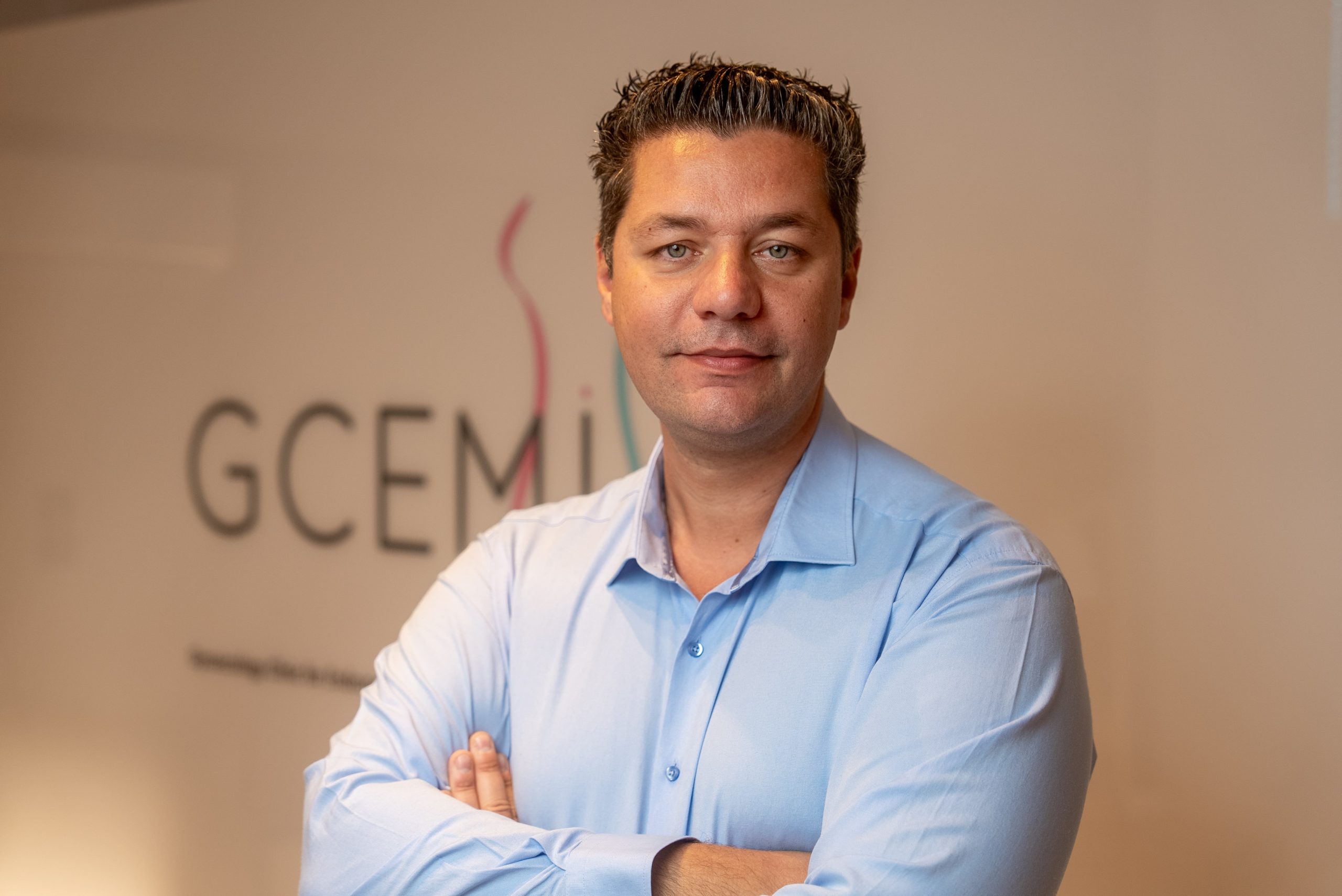
Dr. Konstantinos Kyriakopoulos
Konstantinos Kyriakopoulos, M.D.,
Dr Konstantinos Kyriakopoulos – Endometriosis Specialist, Minimally Invasive Gynecologic Surgeon
Summary: Dr Konstantinos Kyriakopoulos, MD., is a highly skilled endometriosis specialist and minimally invasive gynecologic surgeon based in Athens, Greece. With extensive expertise in treating endometriosis, Dr Kyriakopoulos believes in a multifactorial approach to the disease, considering genetic and epigenetic factors. He is committed to offering personalized care through complete excision surgery, which he believes provides the best outcomes for pain relief and fertility preservation. At Mediterraneo Hospital Glyfada Greece, Dr Kyriakopoulos focuses on ensuring optimal results with minimal recurrence rates, reserving medication like contraceptives and progesterone for specific cases. For patients dealing with persistent pain after surgery, he takes a comprehensive approach, collaborating with a pain management team and utilizing physiotherapy, nerve blocks, and anti-inflammatory treatments when needed.
City: Athens, Greece
Philosophy: Even though endometriosis is a prevalent and unique disease, its pathophysiology stills remains a mystery. I believe that this disease is multifactorial. Moreover, I firmly believe in genetic and epigenetic factors contributing to endometriosis. Hopefully, with the progress in bioinformatics, we will eventually have more valuable information regarding the onset and course of that disease.
Medication: In my practice, I firmly believe that excision surgery is crucial. Complete excision of all the endometriotic lesions gives far better results in controlling pain or sustaining fertility and lower recurrence rates than medication use. I believe that suppression after excisional surgery is unnecessary unless the excision was incomplete. Medication like contraceptive pills, progesterone supplements, or GNRH analogs in my practice is reserved for women who want to control pain until the day of the operation or for patients that want to control pain but definitely avoid surgery. In cases of adenomyosis, I recommend the use of Mirena coil.
Approach to Persistent Pain After Surgery: Patients are followed up closely after operations.
That way, we can monitor their progress. If symptoms persist, evaluation for other causes of pain is undertaken, referral to the pain management team, and physiotherapy. Anti-inflammatory drugs and nerve blocks can be beneficial in situations where symptoms persist.
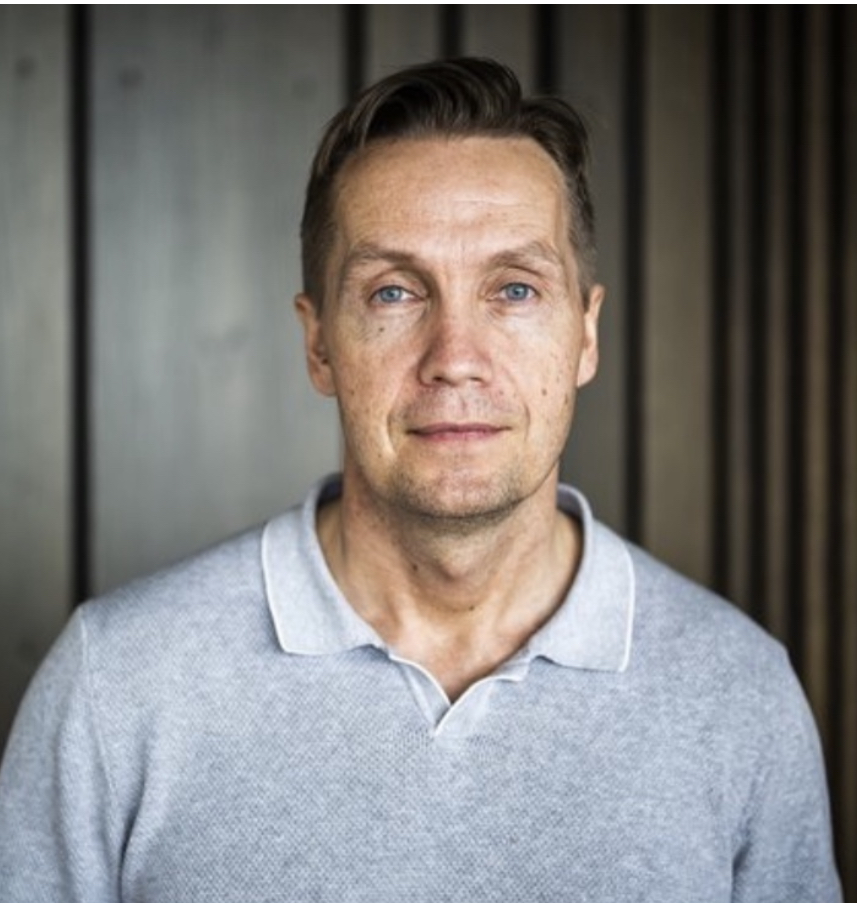
Dr. Jon Einarsson
Jon Einarsson, M.D.,
Dr Jon Einarsson MD – Endometriosis Specialist, Minimally Invasive Gynecologic Surgeon
Summary: Dr Jon Einarsson, MD, a leading endometriosis specialist in Boston, is dedicated to providing comprehensive care for women with pelvic health concerns. With expertise in minimally invasive gynecologic surgery, Dr. Einarsson focuses on the complete excision of endometriosis, recognizing that its origins are multifactorial, including genetic and environmental factors. While surgery is the primary treatment, he emphasizes the importance of a personalized, multidisciplinary approach to address persistent pain and recurrence. After surgery, Dr. Einarsson often recommends hormonal options like continuous birth control or a hormonal IUD to help reduce the risk of recurrence. He works closely with a team of specialists, including pain experts and pelvic floor physical therapists, to offer holistic care that promotes long-term relief and well-being for his patients. With Dr. Einarsson, you receive thoughtful, compassionate care tailored to your unique needs.
City: Boston, MA, USA
Philosophy: The origin of endometriosis is probably multifactorial and includes coelomic metaplasia, retrograde menstruation and genetic predisposition. Complete excision is the mainstay of the surgical approach, but since endometriosis can be found in lymph nodes and elsewhere, recurrences can occur even in the best of hands since microscopic implants may continue to evolve after surgery. This is correlated with age, with a higher risk of recurrence in younger patients.
Medication: In patients who are not contemplating pregnancy after surgery, I generally recommend either continuous birth control pills, hormonal IUD, or oral progestins. This has been shown to reduce the risk of recurrence and repeat surgery. These agents are also better tolerated and equally effective to medications such as Lupron, which we generally do not use.
Approach to Persistent Pain After Surgery: A multidisciplinary approach to pain is essential. We, therefore, work closely with other disciplines such as pain experts, gastroenterology, urology, pelvic floor physical therapy, etc. The goal is to alleviate the patient’s symptoms, and sometimes the main cause of symptoms may not be endometriosis, although this is the most common etiology.
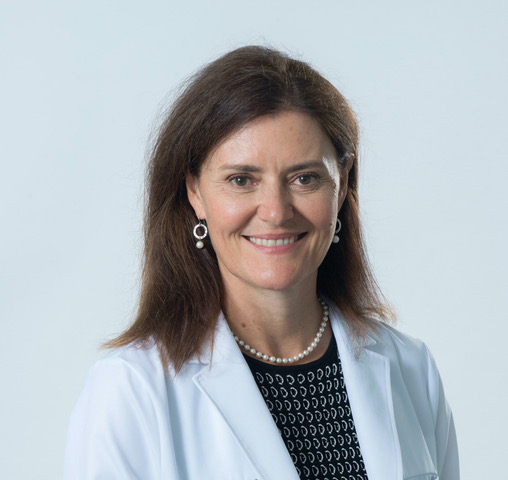
Dr. Shanti Mohling
Shanti Mohling, M.D.
Dr Shanti Mohling – Endometriosis Specialist, Minimally Invasive Gynecologic Surgeon
Summary: Dr Shanti Mohling, an experienced endometriosis specialist based in Portland, OR, takes a multifaceted approach to treating pelvic pain and endometriosis. Dr Mohling believes endometriosis originates during embryogenesis, and hormonal changes at menarche trigger its progression. Her philosophy combines a deep understanding of the condition’s genetic and environmental factors. With a focus on complete excision, Dr Mohling works to arrest the disease and improve her patients’ quality of life. She offers various hormonal therapies, including progestin-only contraceptives and bioidentical hormone therapy for surgical menopause patients. For pain management, she uses a combination of NSAIDs, nerve modulation, and sometimes Botox for pelvic floor myalgia. Dr Mohling’s holistic approach also includes collaboration with specialists in areas like functional medicine, pelvic floor physical therapy, and nutritional support, making her a compassionate and thorough provider for patients seeking expert care for endometriosis.
Incorporating her expertise and dedication, Dr Shanti Mohling is a trusted name in Portland for patients looking for comprehensive care in treating endometriosis and pelvic pain.
City: Portland, OR, USA
Philosophy: I believe endometriosis has multifactorial origins. Regarding surgical management, I treat it as though its origin begins with development during embryogenesis as the müllerian system is migrating. I believe most patients with endometriosis are born with it and that it flourishes during menarche with advent of hormonal changes. I also believe that there is a component of environmental impact such that a patient with genetic predisposition (and abnormal cells from embryogenesis) may do worse with an inflammatory environment (foods, pollution, stress, etc.). However, I believe that complete excision should mostly arrest disease and my treatment is based on mullerianosis as the genesis.
Medication: I work with patients in a collaborative fashion to arrive at the best option for each individual.
Hormonal therapies: Progestin-only contraceptives, combination oral contraceptives, Levonorgestrel IUD, Nexplanon occasionally. I almost never offer Depo Medroxyprogesterone acetate (due to side-effects) or GnRH analogs (due to side-effect profile and long-term negative effects). I have worked with bioidentical hormone therapy for over 20 years and also incorporate that when appropriate, such as in patients who have undergone surgical menopause or patients who do not tolerate synthetic hormonal therapy.
For pain: NSAIDS, occasionally narcotics, naltrexone and occasionally Medical Marijuana when appropriate. Sometimes neuromodulators such as gabapentin and pregabalin. I often recommend amitriptyline, especially in the case of interstitial cystitis. Finally, I sometimes prescribe compounded vaginal suppositories which may include valium, baclofen or ketamine.
I also use Botox for pelvic floor myalgia on a routine basis.
Approach to Persistent Pain After Surgery: I believe most pelvic pain is multifactorial: endometriosis, interstitial cystitis, bowel dysfunction (to include IBS, SIBO, Intestinal Permeability, gastroparesis), myofascial pain and neuropathic pain. At the initial work-up, I attempt to identify each of these contributors. Yesterday, I saw a postop patient who had had extensive endometriosis excised and confirmed by pathology. She had persistent pain. We reviewed her history of bowel symptoms, history of schistosomiasis and giardia (she had worked in Africa) as well as an exam suggesting pelvic floor myalgia. She will now work with a functional medicine specialist and pelvic floor physical therapist. We also discussed hormonal options (progesterone has a distinct effect on gastric function). This is very typical of my approach.
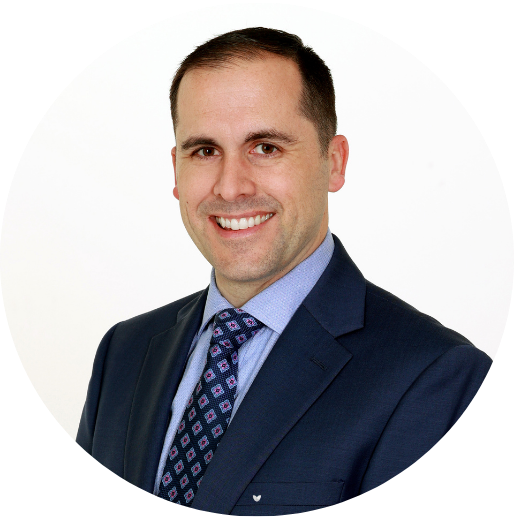
Dr. Chris Kliethermes
Chris Kliethermes, M.D.
Dr Chris Kliethermes – Endometriosis Specialist, Minimally Invasive Gynecologic Surgeon
Summary: Dr Chris Kliethermes is a compassionate endometriosis specialist and minimally invasive gynecologic surgeon based in Troy, MI. With extensive experience and a deep understanding of endometriosis, Dr. Kliethermes is known for his commitment to optimal excision and restoring normal anatomy—an approach influenced by his training under Dr. Patrick Yeung. Patients seeking expert care appreciate Dr. Kliethermes’s balanced perspective on treatment options and his personalized approach to managing endometriosis pain. Whether you’re researching Dr. Kliethermes or looking for insights into Chris Kliethermes’s surgical philosophy, his profile provides both clinical expertise and patient-centered care.
In addition to surgery, Dr. Kliethermes supports patients with education on hormonal options and collaborates closely with pain specialists, physical therapists, and fertility experts. His goal is always to guide each patient toward effective, long-term relief with warmth and professionalism.
City: Troy, MI, USA
Philosophy: At this point, I take all theories into consideration as possible origins for endometriosis. I inform my patient about the Mullerianosis, stem cell/retrograde flow, or vascular dissemination theories. My goal is to best treat my patients and, until we learn more about the disease, try to look at aspects of research being conducted for origins. Training with Dr. Patrick Yeung in residency, I fully agree with his teachings of optimal excision and restoration of normal anatomy as essential to properly treat the disease surgically.
Medication: Medication does not treat endometriosis, but more masks symptoms. I do offer patients who are not interested in pregnancy hormonal suppression following surgery, pending their postoperative pain, as I have seen decreased pelvic pain in patients with a levonorgestrel IUD. For patients that are absolutely adamant they want to avoid surgery (which is extremely rare) the IUD is again my preferred method. I often will educate pre- and post-op patients regarding the GnRH analogs and give them the autonomy to choose these methods if desired, although I do believe the benefits of these medications do not outweigh the cons.
Approach to Persistent Pain: For patients with persistent symptoms after surgery, I have multiple options, assuming optimal excision. Our hospital system has access to pain specialists, physical therapy, other surgical specialties, and nutritionists. Thus far, I have only had to utilize them sparingly, but I am lucky to have their services accessible. There are also local sex therapists. I work closely with and often get referrals from our REI department, with whom I consult frequently for fertility concerns.
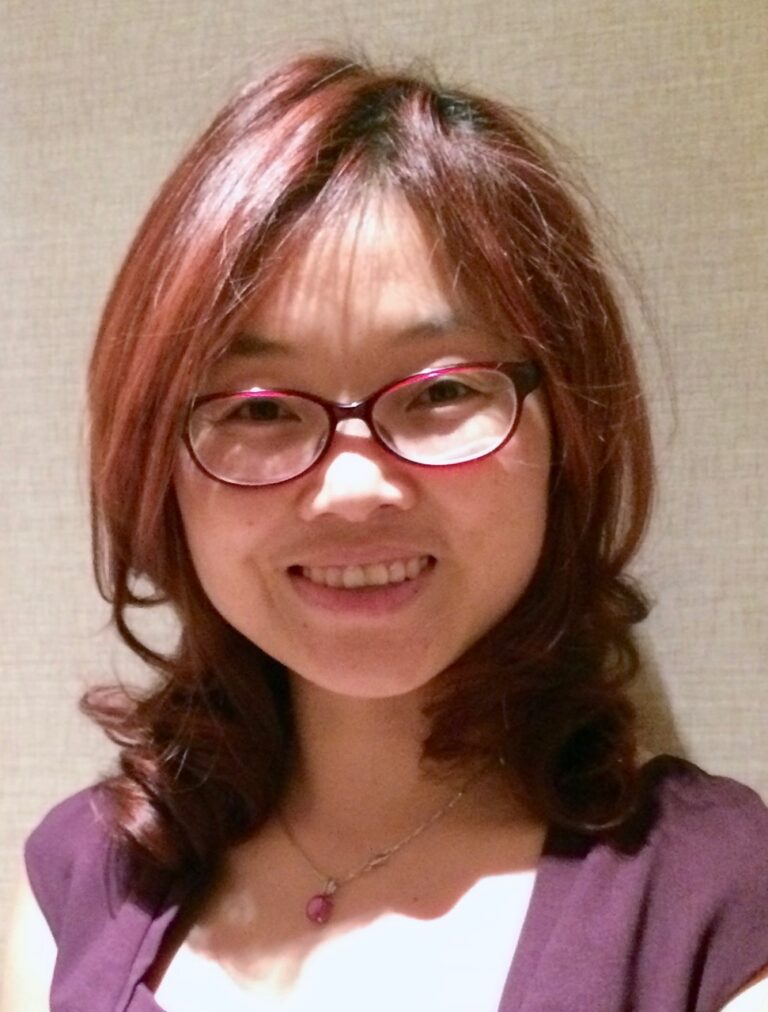
Dr. Ma Li
Dr. Ma Li, M.D.
Dr Ma Li – Endometriosis Specialist, Minimally Invasive Gynecologic Surgeon
Summary: Dr Ma Li is a leading specialist in endometriosis care and minimally invasive gynecologic surgery based in Singapore. Known for her compassionate approach, Dr. Ma Li offers personalized treatment options for patients seeking expert support for endometriosis in Singapore. She specializes in both hormonal therapy and endometriosis surgery in Singapore, tailoring care based on each patient’s symptoms, fertility goals, and surgical history.
With a deep understanding of conditions like adenomyosis, IBS, and myofascial pain, Dr Ma Li takes a holistic view of persistent pelvic pain. She prioritizes accurate diagnosis, evidence-based treatments, and collaborative care with other specialists when needed. Whether it’s using hormonal management to prevent recurrence or performing advanced excision surgery, her focus is on long-term relief and quality of life. Patients trust Dr. Ma Li for her dedication and expertise in treating endometriosis in Singapore through both medical and surgical options.
City: Singapore, Singapore
Philosophy: Retrograde menstruation and metaplasia, hormone dependant.
Medication: Progesterone based (dienogest, depo-provers), Mirena, GnRha, oral contraceptive pills
1. I use hormonal suppression mostly for postop patients who don’t have a fertility plan, aiming to reduce the risk of recurrence.
2. young patient, low AMH, the trial of medical treatment, and monitor response.
Approach to Persistent Pain: 1. need to find out why pain persists. whether due to previous incomplete surgery, adenomyosis, or other reasons such as IBS, interstitial cystitis, myofascial pain syndrome, etc. and treat accordingly.
2. if due to incomplete surgery, depending on the location of the disease. If deep infiltrating endometriosis, I will suggest repeat surgery. if cyst recurrence, for a young patient, I will try hormonal treatment and see the response. If poor response, then repeats surgery.
If it’s due to adenomyosis, for patients with fertility requirements, I will try the hormonal treatment. For those who had completed family, and failed medical treatment, I will suggest a Total Laparoscopic Hysterectomy.
If it’s due to IBS, Interstitial Cystitis, or myofascial pain, I will refer other subspecialties accordingly.

Dr. Steven Vasilev
Dr. Steven Vasilev MD, MBA FACOG FACS FACN ABIHM ABOIM
Dr Steven Vasilev – Endometriosis Specialist, Oncology & Minimally Invasive Robotic Surgery| Medical Director, GO Institute.
Summary: Dr Steven Vasilev is a highly respected endometriosis specialist serving patients in Santa Monica, Beverly Hills, and San Luis Obispo. With over 30 years of experience, Dr Vasilev is known for his expertise in complex gynecologic surgery, including minimally invasive and robotic techniques. Steven Vasilev MD is the only physician in the U.S. triple board-certified in OB-GYN, oncology, and integrative medicine—bringing a comprehensive, personalized approach to each patient’s care.
Patients who choose Dr Steven Vasilev benefit from a philosophy that combines precision excision surgery with holistic healing strategies. From preoperative imaging to pelvic floor therapy and integrative recovery plans, Dr Vasilev offers thoughtful, multidisciplinary care tailored to long-term wellness. Steven Vasilev MD is not only a skilled surgeon but also a compassionate listener dedicated to improving outcomes for those living with endometriosis.
City: Santa Monica, Beverly Hills & San Luis Obispo, CA, USA.
Please watch the short informative video in the upper left corner of this profile.
Philosophy:
In addition to being a doctor and surgeon, I am a clinical researcher and translational scientist. We are studying the molecular behavior of endometriosis in our laboratories. Endometriosis theories suggest multiple causes, and each thesis
contributes to factors likely tied together at the molecular genetic level. Identification of endometriosis molecular and immunomodulatory pathway biomarkers will soon lead to better non-invasive diagnostics, accurate monitoring, and effective therapies beyond the baseline of expert excisional surgery and hormonal manipulation. I focus on this and the uncommon but clear overlap with malignancy in older endo patients or those with a family history.
Surgical excision is a critical cornerstone for endo diagnosis, initial treatment, and re-excision of recurrence or pain-producing fibrosis. My philosophy is to be fully informed and prepared, no matter the findings, through optimal preoperative imaging and testing. Fortunately, my unique training and board certifications permit surgery on all abdominal or pelvic organs, including small and large bowel, ureters, bladder, liver, and diaphragm. If disease is suspected beyond these organs, such as the chest, we have expert cardiothoracic and neurosurgeons ready to join a multidisciplinary surgery. Having used both laparoscopy and robotics in thousands of surgeries over three decades, including the hardest of the complicated surgeries, I firmly believe that the far superior 3-D camera optics and articulating or wristed “tiny hands” instruments used in robotics are better than traditional laparoscopy for all but the simplest of cases. When complicated anatomy or scarring from endo and fibrosis is unexpectedly found, which is not uncommon because endo is intensely inflammatory, the ability to see better and use finesse instruments makes all the difference, especially in highly experienced hands.
Medication:
During the perioperative period, we use holistic ERAS-modified care, combined with integrative modalities such as acupuncture and acupressure, to allow faster recovery with lower narcotic use. We individually construct and coordinate a multidisciplinary consulting team of experts to manage pain, intestinal manifestations such as SIBO and pelvic floor dysfunction. We work with referring gynecologists regarding hormonal support but discourage using GnRH-based therapies. My board certification in Integrative Medicine uniquely injects additional options involving holistic care. An example is proactive estrobolome management to lower systemic estrogen levels naturally.
Approach to Persistent Pain:
Both pre- and post-operatively, I strongly encourage pelvic floor therapy and pain specialist consultation and follow-up. The genesis of endo-induced pain can be due to endometriosis implants and peripheral visceral and parietal peritoneal nociception, fibrosis, direct nerve impingement, pelvic floor dysesthesia, or central sensitization. A very individual approach is vital to the best management plan. In primary and persistent pain situations, each of these “medicalese” terms is discussed in detail to craft the best possible personalized plan. Finally, as noted above, I am a board-certified integrative medicine practitioner and thus apply Eastern thought such as acupuncture, mind-body strategies, and personal nutritional counseling and interventions.
Dr. Steve’s Articles:
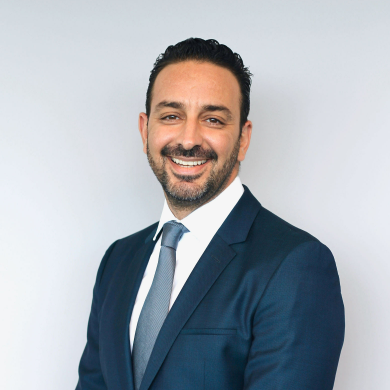
Dr. Nadim Hawa
Dr. Nadim Hawa, M.D.
Dr Nadim Hawa – Endometriosis Specialist, Minimally Invasive Gynecologic Surgeon
Summary: Dr Nadim Hawa is an experienced endometriosis specialist and minimally invasive gynecologic surgeon based in Leesburg, VA. Known for his compassionate and individualized care, Dr. Hawa is committed to helping patients find lasting relief from endometriosis. Whether you’re searching for Dr Hawa OBGYN or learning more about Dr Hawa endometriosis expertise, his approach combines surgical precision with long-term support.
Dr Hawa believes endometriosis has diverse origins, which is why he tailors treatment plans to each patient’s specific condition. While medications may ease symptoms, he emphasizes that they don’t address the root of the disease. Instead, he focuses on complete excision surgery and often integrates pelvic floor therapy to improve outcomes. As both a skilled surgeon and dedicated partner in care, Dr Nadim Hawa offers a comprehensive approach to managing endometriosis with the goal of restoring quality of life.
City: Leesburg, VA, USA
Philosophy: Multiple factors. Combination of in Sito development and endometrial transplantation. I do not believe there is only one type of endometriosis. Different origins hence different differentiation, behavior, and clinical impact. Same as fibroid. Why you have one solitary fibroid vs the bag of marbles of a uterus. Different gene expression and different behavior.
Medication: Medication and hormonal suppression serve only to relieve symptoms but not treat the disease. By stopping the dynamic motion of the uterus with suppression, you limit the superficial peritoneal inflammation and cause symptomatic relief, but you will not affect the deep lesions. since they produce their own estrogen and pro-inflammatory mediators. .I use IUD and usually insert intraoperatively after the excision surgery if the patient e desires birth control. GnRH agonist/antagonist are harmful and I do not use them
Approach to Persistent Pain: Surgery alone is not enough. Pelvic floor therapy is as important as surgery, for long term recovery.
A second excision is usually advised.
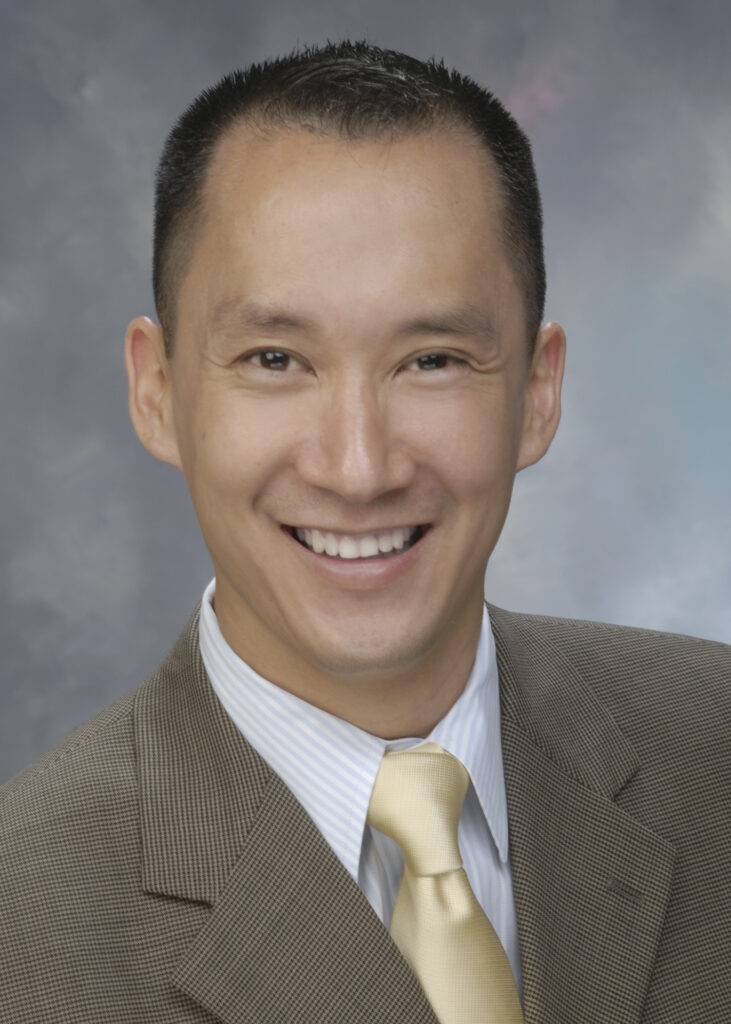
Dr. Patrick Yeung Jr
Dr Patrick Yeung Jr, M.D.
Dr Patrick Yeung – Endometriosis Specialist, Minimally Invasive Gynecologic Surgeon
Summary: Dr Patrick Yeung is a renowned endometriosis specialist and minimally invasive gynecologic surgeon based in St. Louis. Known for his deep commitment to individualized care, Dr Patrick Yeung takes a comprehensive and evidence-based approach to treating endometriosis. Patients seeking answers about complex pelvic pain or surgery often find lasting relief through his expertise. Whether you’re researching Dr Patrick Yeung St Louis, exploring options for Patrick Young endometriosis treatment, or looking for the right specialist, Dr Yeung offers trusted, compassionate care.
With a philosophy rooted in achieving optimal excision over hormonal suppression, Dr Yeung believes real healing begins by treating the disease at its core—not just its symptoms. As a thought leader challenging outdated theories like retrograde menstruation, Dr Patrick Yeung focuses on precision surgery and comprehensive post-op support. Patients nationwide turn to Dr Patrick Yeung St Louis for relief from persistent endometriosis pain and personalized, long-term care.
City: St. Louis, MO, USA
Philosophy: Metaplasia or maybe stem cells. I agree with Dr. Redwine that the retrograde menstruation theory is probably one of the most problematic areas in our understanding of endometriosis and leads people to make statements or hold ideas that just biologically are not true (like hysterectomy or inducing amenorrhea will somehow treat endometriosis).
Medication: I rarely, if ever, use or recommend hormonal suppression, which at best is symptomatic relief; I think that hormonal suppression does nothing to the actual disease (it certainly does not dissolve it or get rid of it), has not been shown or proven to prevent progression, does NOT help (later) fertility, and can have serious side effects.
I do NOT recommend postoperative hormonal suppression to prevent progression or recurrence if I think that optimal excision has been achieved. So I am committed to achieving optimal excision at the time of surgery.
Approach to Persistent Pain: If a patient has had optimal excision, then endometriosis as a source of pain should be at the bottom of the list of potential symptoms, though not off the list. Other sources of pain should be investigated first before revisiting the issue of endometriosis-associated pain or at least in thinking that another surgery would be helpful. The uterus itself could also be a source of pain.
Since incorporating a more global or comprehensive approach to pain, our rate of repeat surgery for endometriosis has gone from 40% to 6%.
If surgery is to be repeated, I like to try to do something different than what was done the first time, in the hopes of a different outcome.

